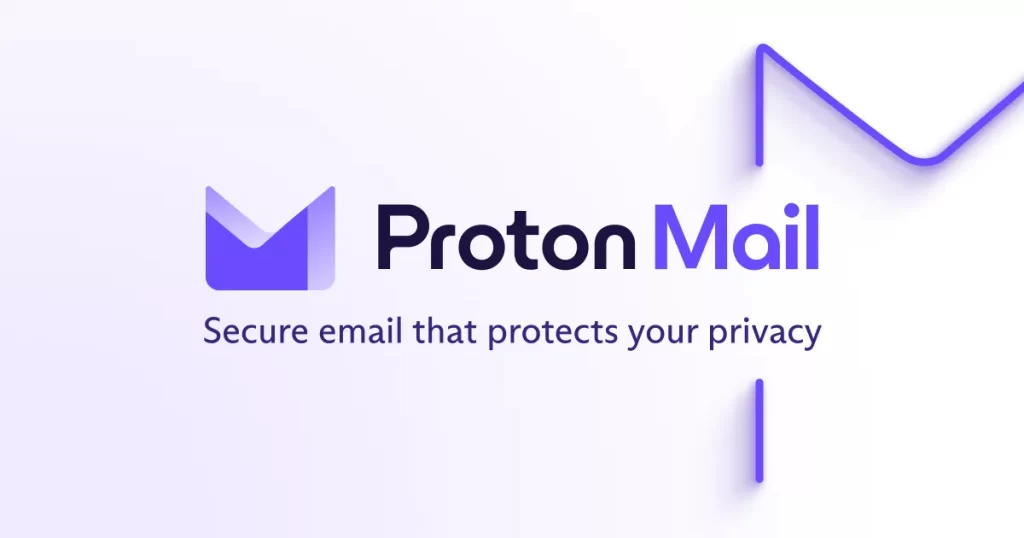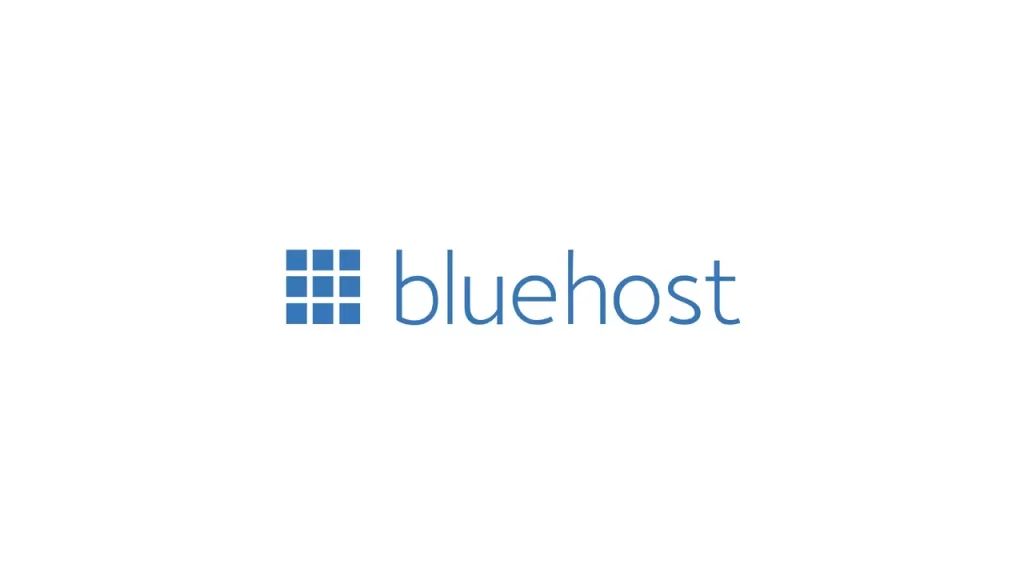Finding the best email hosting for small business in 2025 can be a game-changer. Because of remote work and digital communication, reliable email hosting has become a must. In 2019, more than 1.5 billion sites are online and the web hosting market is set to be worth $832.1 billion by 2025. It is therefore important that you select the best email hosting company for your business.
In this article from 1Byte, we’ll take a deep dive into the top 7 email hosting providers for small businesses in 2025. Using reports, it will look at new stats and information to help you make an informed decision. Regardless of whether you need advanced security features, smooth integration with other tools, or affordable pricing, this guide is for you.
So, let’s dive in and see what the best email hosting for small business is.
Criteria for Choosing the Best Email Hosting
Choosing the best email hosting for small businesses involves several key criteria. By keeping these criteria in mind, small businesses can find the best email hosting provider to meet their needs and support their growth.
FURTHER READING: |
| 1. Web Hosting Terminology Explained: Essential Terms for Beginners |
| 2. Top 10 Cheap Web Hosting Companies in Singapore |
| 3. How to Switch Web Hosts: 7 Easy Steps |
Security Features
When choosing the best email hosting for small businesses, security is a top priority. Here are some essential security features to look for:
- Two-Factor Authentication (2FA): It creates another layer of safety, that for you to login into your email account, you have to take one more step of verification. This reduces the risk of unauthorized access enormously.
- End-to-End Encryption: This means your emails will be encrypted from the sender to the recipient, so no one else can read them on the way there. This feature is provided by providers such as ProtonMail and Tutanota.
- Data Encryption in Transit and Storage: Protect sensitive information by encrypting data both in transit and at rest.
- Email Filters and Spam Protection: Spam filters and anti malware tools keep your inbox clean and safe by blocking un-wanted emails and attachments.
- Multi-Platform Compatibility: Every service should make room for seamless use across different platforms such as desktops, laptops, tablets and smartphones.
- Strict Privacy Laws Compliance: Make sure the provider complies with privacy laws and regulations like GDPR so user data and their privacy are protected.
- Integration with Other Tools: Always look for the email hosting service that works with other tools you already use, like calendars, task management or CRM tools.
- Regular Security Updates: Providers should keep their systems secure against the threats of today, tomorrow and beyond by regularly updating and patching their systems.
- Secure Cloud Storage: The email hosting service should provide secure and efficient cloud storage if it has the same.
- Ad-Free Services: Ad free services stop having your activities tracked so you can’t be targeted with ads.
You can see more detailed information in reports such as the one by Markets and Markets.
FURTHER READING: |
| 1. Why Am I Getting So Much Spam Email? Reasons and Solutions |
| 2. Email Servers on Shared Hosting: Challenges Uncovered |
| 3. What is an Email Domain: A Closer Look |
Storage Capacity
Choosing the best email hosting for small businesses hinges on storage capacity. By 2025, small businesses are looking to store around 50 GB of email per user. It depends on the business type. For example, a larger marketing agency needs more storage than a small retail store because it contains more attachments.

Different email hosting provide different storage capacities. Gmail for Business offers 30 GB per user and the Microsoft 365 Business Basic offers 50 GB. Zoho Mail and Google Workspace are providers that offer scalable storage so that businesses can grow as they need to.
It is necessary to take future growth into account. According to a Technavio report, the email hosting services market size is expected to grow at a CAGR of 25.43%, between 2023 and 2028, thanks to increasing demand for cloud based applications. This emphasizes why you need a provider who grows with your business.
To sum it up, when choosing email hosting providers, look at storage capacity, how scalable they are, and whether they align with your business requirements. It guarantees that your email system is always capable and efficient enough to process business communications.
User-friendliness and Customer Support
When choosing the best email hosting for small businesses, user-friendliness and customer support are crucial factors. The interface is also a user friendly one which enables employees to quickly adapt to the new system and minimize productivity loss and downtime. A report by Technavio estimates that the email hosting services market is expected to expand at a great extent as demand for cloud based applications and user friendly services grows.
But customer support is equally important. Businesses require reliable and responsive support in order to deal with any issues on hand quickly. Take for example, Hostinger with excellent 24/7 live chat support which has been more effective and efficient as compared to normal phone support. The kind of support provided to businesses allows problems to be solved quickly thereby minimizing disruption to operations.
In fact, a study by Data Bridge Market Research emphasizes the need for integrated collaboration tools within email platforms. They increase productivity, making it easy to communicate and manage a project from within the email system. Small businesses that need to streamline their workflows prefer providers who have such features.
The best email hosting providers for small businesses are easy to use with exceptional customer support. Features that help businesses keep efficiency and solve problems quickly to ensure smooth operations.
Integration with Other Tools and Services
When choosing the best email hosting for a small business, integration with other tools and services is crucial. It guarantees seamless workflows and provides the greatest productivity. Here are some key points to consider:
- CRM Systems: In addition to containing everything about any given project and customer, these systems must also integrate tightly into Customer Relationship Management (CRM) systems like Salesforce or HubSpot to allow the user to efficiently track and manage customer interactions. Businesses can track emails, schedule follow ups and maintain a fully comprehensive database of customer data.
- Marketing Platforms: Businesses are able to create and send targeted email campaigns right from their email accounts thanks to email hosting providers that combine with marketing platforms like Mailchimp or Constant Contact. He adds that it facilitates the marketing process and makes it more consistent in communications.
- Collaboration Tools: The integration with collaboration tools such as Slack, Microsoft Teams, and Google Workspace improves team communication and project management. The big advantage is that it allows team members to share files, schedule events, and collaborate on projects, all without leaving their email interface.
- Project Management Applications: Email hosting helps businesses to connect email hosting with project management applications such as Trello or Asana and a lot of businesses can organize tasks, assign responsibilities, and track progress in email notifications.
- Cloud Storage Services: Integration with third party cloud storage services such as Google Drive or Dropbox allows for easy storage, accessing, and sharing of email attachments in order to improve the management and collaboration of documents.
- Calendar Services: Businesses can book and manage their appointments, meetings, and events on their email accounts through the integration with calendar services such as Google Calendar or Microsoft Outlook Calendar.
- Analytics Tools: Businesses especially love integration with analytics tools like Google Analytics or Microsoft Power BI so they can track email performance and measure engagement and get insight into customer behaviour.
- E-commerce Platforms: Businesses can integrate with e-commerce platforms like Shopify or WooCommerce to send order confirmations, shipping notifications, promos right from their email hosting service.
Top 7 Email Hosting Providers in 2025
Choosing the best email hosting for small businesses in 2025 is crucial for efficient communication and productivity. According to recent data, no less than 4 billion email users worldwide depend on email hosting services for simplification of inbox and the rise of the productivity level. In this section we cover the top email host providers by their main features, security and all round value for small businesses.
Provider 1: Google Workspace
In 2025, Google Workspace will remain the top choice for small businesses. The productivity tools suite comprise Gmail, Google Drive, Google Meet, and Google Calendar. All of these tools are integrated seamlessly, so it’s simple for teams to work with and stay organized. As per the report by Forbes Advisor, Google Workspace earns a mention for its secure and user friendly interface.

Google Workspace has really flexible pricing plans. Starting at $6 per user per month for its Business Starter plan, businesses can select one that fits their needs. It offers pooled storage of 30GB per user and access to Google Meet for up to 100 participants. Business Standard and Business Plus, on the other hand, are meant for businesses needing more storage and feature creep as both offer 2TB and 5TB of pooled storage respectively.
Another thing about Google Workspace is that it offers enterprise grade security that includes two factor authentication and phishing protection. The features provide protection to business data and for compliance with industry standards. Moreover, the launch of the Gemini App, an AI assistant powered by enterprise grade security and privacy, adds to the productivity and security of Google Workspace.
Pricing Plans
Business Starter: $6 per user per month
- 30 GB pooled storage per user
- Google Meet with up to 100 participants
- Standard security and management controls
Business Standard: $12 per user per month
- 2 TB pooled storage per user
- Google Meet with up to 150 participants and recording
- eSignature with Docs and PDFs
Business Plus: $18 per user per month
- 5 TB pooled storage per user
- Google Meet with up to 500 participants and recording
- Enhanced security and management controls
Enterprise: Contact sales for pricing
- Customizable storage and features
- Advanced security, management, and compliance controls
Provider 2: Microsoft 365
Microsoft 365 remains a top choice for small businesses in 2025. This includes a complete suite of productivity tools such as Word, Excel, PowerPoint, Outlook and Teams, so you can stay productive and connected with everything a small business needs. The good news about Microsoft 365 is that it integrates well with other Microsoft services which makes it a flexible option for businesses of all sizes.

Microsoft 365’s latest feature, equipped with advanced AI tools like Copilot and Designer, has introduced businesses to automating tasks and creating professional content in no time, all by 2025. There has been heavy feedback from users who liked the extra efficiency, and creativity these updates brought to their day to day operations.
On the other hand, in addition, Microsoft 365 security features have been beefed up to help businesses cope with increasing cyber threats. Small businesses can operate safely and securely through features like multi-factor authentication (MFA) and advanced threat protection.
Reliability and ease of use is echoed by the customer reviews of Microsoft 365. Its user friendly interface and the strength of support from Microsoft makes many small business owners happy. Another benefit is that the platform is scalable so businesses can grow without having to worry about outgrowing your email hosting provider.
Pricing Plans
- Microsoft 365 Business Basic: $6.88 per user/month
- Microsoft 365 Business Standard: $13.52 per user/month
- Microsoft 365 Business Premium: $23.90 per user/month
- Microsoft 365 Apps for Business: $11.35 per user/month
Provider 3: Zoho Mail
In 2025, Zoho Mail is a top choice for small businesses. Zoho Mail is robust for its security features and also offers full integration with productivity tools. It’s focused on privacy and support of custom domains. With its user-friendly interface and collaboration tools, Zoho Mail is a great choice for businesses that need to streamline their communication processes.

As recent reports suggest, 1.5% of all websites globally reportedly use Zoho Mail which implies it is on the rise. Zia, the platform’s AI assistant also makes it easy to manage emails both effectively and swiftly, while its unified desktop app improves productivity by bringing together email, calendar, chat and calls in one interface. Zoho Mail provides enterprise grade custom email and large storage options for small businesses as a solid partner for their communication needs.
Pricing Plans
Mail Lite: $1.00 per user/month (billed annually)
- 5 GB mail storage per user
Mail Premium: $4.00 per user/month (billed annually)
- 50 GB mail storage per user + 50 GB retention storage
Workplace Standard: $3.00 per user/month (billed annually)
- 30 GB mail storage per user
Workplace Professional: $6.00 per user/month (billed annually)
- 100 GB mail storage per user + 100 GB retention storage
- 1 TB team storage for more than 3 users
Workplace Enterprise: Custom pricing for larger organizations
Provider 4: ProtonMail
One of the most popular hosting providers of email, ProtonMail, is notorious for its many security features. End to end encryption, meaning only the sender and recipient can read emails. This makes it awesome for small businesses that value privacy and data protection. But ProtonMail also supports custom email domains, so if you run a business you can use your own email addresses.

In 2025, secure email hosting with ProtonMail remains a top choice. New features, including encrypted contact details and password protected emails were introduced by the provider. These enhancements further reinforce its reputation as a safe and secure email hosting service. ProtonMail is still the number one most secure email provider in 2025, said a report from Cybernews.
Pricing Plans
- Proton Free: Free plan with basic features such as 1 email address, 1 GB of storage, and access to Proton VPN.
- Proton Mail Plus: $6.99/month, includes 5 GB of storage, custom email domains, and unlimited aliases.
- Proton Unlimited: $10.99/month, offers unlimited storage and additional features like encrypted contact details.
- Proton Duo: $12.99/month, designed for families with shared storage and calendars.
- Proton Family: $16.99/month, provides enhanced security features and support for multiple users.
- Proton Visionary: $24.99/month, includes priority customer support and dark web monitoring.
Provider 5: Bluehost
Reliable email hosting is the top reason small businesses should choose Bluehost. Bluehost is well known for its easy to use interface and impressive features, like its professional email solutions, which aid businesses in creating the credibility and trust they need from their clients. Bluehost offers a free domain name, SSL certificate and one click WordPress installation, making it very simple to launch your email hosting.

The email hosting plans of Bluehost have the features of spam filtering, virus protection and other unlimited mail filters. Your email can also be integrated with calendars, contacts and tasks, which encourage smooth communication of your team. Bluehost’s plans are competitively priced, starting at $2.95 per month for the first year, and are affordable to small businesses.
Bluehost comes out on top when it comes to value priced starter plans and great customer service, according to Forbes Advisor’s recent report. Bluehost’s 24/7 phone and chat support is what the report has to say about Bluehost, nothing but the right thing for businesses that require immediate assistance. But renewal rates vary and some plans include upselling.
Pricing Plans
- Starter Plan: $2.95 per month for the first year
- Professional Email: $8.99 per month
- Professional Email Plus: $11.99 per month
- Google Workspace Integration: Starting at $6 per user per month
Provider 6: Rackspace Email
Rackspace Email is a top pick for small businesses in 2025. They have robust email hosting solutions complete with advanced security features. These platforms are always up and running and customer support is given. Rackspace’s knowledge in cloud service and commitment towards data protection is good for small businesses.

Rackspace Email integrates seamlessly with other business tools, offering better productivity and collaboration. Along with spam filtering, virus protection and customisable email addresses, the platform presents itself as a bevy of email management features. As a small business owner, Rackspace Email will keep you both professional and streamline a critical part of running your business: communication.
Pricing Plans
- Starter Plan: $5 per user/month, includes 25GB of storage and basic security features.
- Pro Plan: $10 per user/month, offers 50GB of storage, advanced security, and priority support.
- Enterprise Plan: $20 per user/month, provides 100GB of storage, premium security features, and dedicated account management.
Provider 7: FastMail
Small businesses searching for dependable email hosting with robust privacy features go for FastMail. With its simple and secure interface, FastMail makes sure that your business communications are both secure but effective. All and all, FastMail remains unique in 2025, as a service committed to privacy and data protection, which are crucial to the business.

FastMail offers a number of features tailored for small business. This includes powerful spam filtering, end-to-end encryption and customizable email domain, amongst others. But it also offers fantastic customer support to sort out any niggles quickly. FastMail offers small businesses the complete email experience implemented in one interface.
Pricing Plans
- Personal Plan: $3 per user per month (annual contract)
- Standard Plan: $5 per user per month (annual contract)
- Professional Plan: $8 per user per month (annual contract)
- Enterprise Plan: Custom pricing based on business needs
Leverage 1Byte’s strong cloud computing expertise to boost your business in a big way
1Byte provides complete domain registration services that include dedicated support staff, educated customer care, reasonable costs, as well as a domain price search tool.
Elevate your online security with 1Byte's SSL Service. Unparalleled protection, seamless integration, and peace of mind for your digital journey.
No matter the cloud server package you pick, you can rely on 1Byte for dependability, privacy, security, and a stress-free experience that is essential for successful businesses.
Choosing us as your shared hosting provider allows you to get excellent value for your money while enjoying the same level of quality and functionality as more expensive options.
Through highly flexible programs, 1Byte's cutting-edge cloud hosting gives great solutions to small and medium-sized businesses faster, more securely, and at reduced costs.
Stay ahead of the competition with 1Byte's innovative WordPress hosting services. Our feature-rich plans and unmatched reliability ensure your website stands out and delivers an unforgettable user experience.
As an official AWS Partner, one of our primary responsibilities is to assist businesses in modernizing their operations and make the most of their journeys to the cloud with AWS.
Conclusion
Selecting the best email hosting for small business in 2025 is crucial for effective communication and productivity. For small to medium businesses providers such as Google Workspace, Microsoft 365, and Zoho Mail provide a solid set of features. These services provide secure, consistent email communication, to help grow and succeed businesses.
In summary, choosing a good email hosting provider can make or break your business. Choosing the best email hosting for your small business doesn’t need to be complicated, since there are several things to consider, including security, features and cost.

